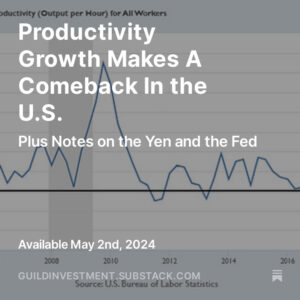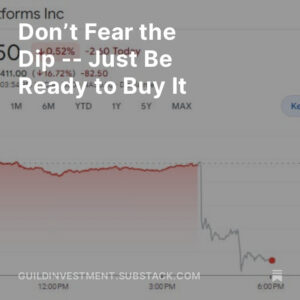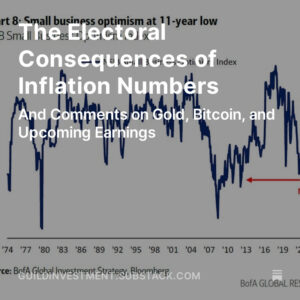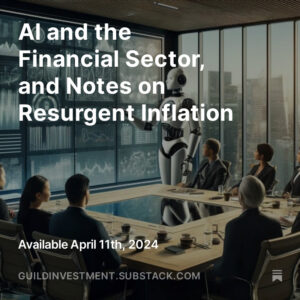With all the reflection and analysis we’ve been offering about inflation over the past year, we should emphasize again that we do not believe the U.S. is headed for hyperinflation or any imminent financial catastrophe. While we think the very long-term trends of spending, unfunded liabilities, and corporate and government indebtedness are troubling and are likely to lead eventually to cathartic events, we do not believe such events are likely in the near future.
Right now, in the big picture, U.S. stocks remain in a credit-led bull market, underpinned by massive liquidity. In the nearer term, as we noted in our “year-ahead” reflections, we think current events are likely to create a more volatile environment in the coming year, offering tactically minded investors the opportunity to sell ramps, buy dips, and rotate among sectors — though all of these movements have become more rapid and difficult to navigate successfully.
In December 2019, U.S. bank deposits (earning virtually no return) totaled about $14.5 trillion; at the end of June 2021, that stood at about $18.7 trillion. This is far from the only potential source of “cash on the sidelines” that can step in to “buy the dips” as they occur (money market funds are another). We believe this reality will help to constrain the depth and duration of corrections. The pool of capital earmarked for risk assets is growing, and the hunger for yield of the biggest institutional market participants (pension funds and insurance companies) is as high as ever.
Major analysts are beginning to ratchet back their GDP growth projections for 2022, largely because of the failure of the current administration’s push for their Build Back Better spending bill. We think it is likely that a smaller version of this plan will be passed next year; West Virginia Senator Joe Manchin is said to have been positive on a more conservative bill.
Turkey
Ongoing monetary chaos in Turkey continues to illustrate several points for us, beyond the point that demagogues and would-be despots are unlikely to be sources of groundbreaking new monetary and economic theory. (Turkey’s Prime Minister seems to believe he has discovered an economic Holy Grail, to wit: the way to combat hyperinflation is to cut interest rates.)
The first point is that the global use case for cryptos is enhanced by the policies of despotic and destructive governments. As we noted last week, we think that the first sidelining of a formal financial system by crypto is likely to occur in a state with failed financial infrastructure. Unfortunately such failure is typically accompanied by political repression.
The second point is that even in situations of monetary intransigence, locals who have no recourse to foreign currencies, cryptos, or hard assets, can have recourse to local stocks. Albeit with great volatility, stocks in countries like Venezuela, and now Turkey, have kept some kind of pace with inflation, permitting some value to be maintained.
American investors for whom our qualitatively different inflation dynamics are a concern would do well to note this as well: stocks can perform well in an inflationary environment — you just have to adjust your portfolio to manage inflationary risk.
We are attentive to the opportunities that will be created by expected market volatility. We believe that cryptocurrencies, gold, some commodities, growth stocks at a reasonable price, and certain large-cap growth stocks are going to be attractive buys when volatility occurs. Don’t hesitate to call our office if you have questions on strategy.
Thanks for listening; we welcome your calls and questions.







